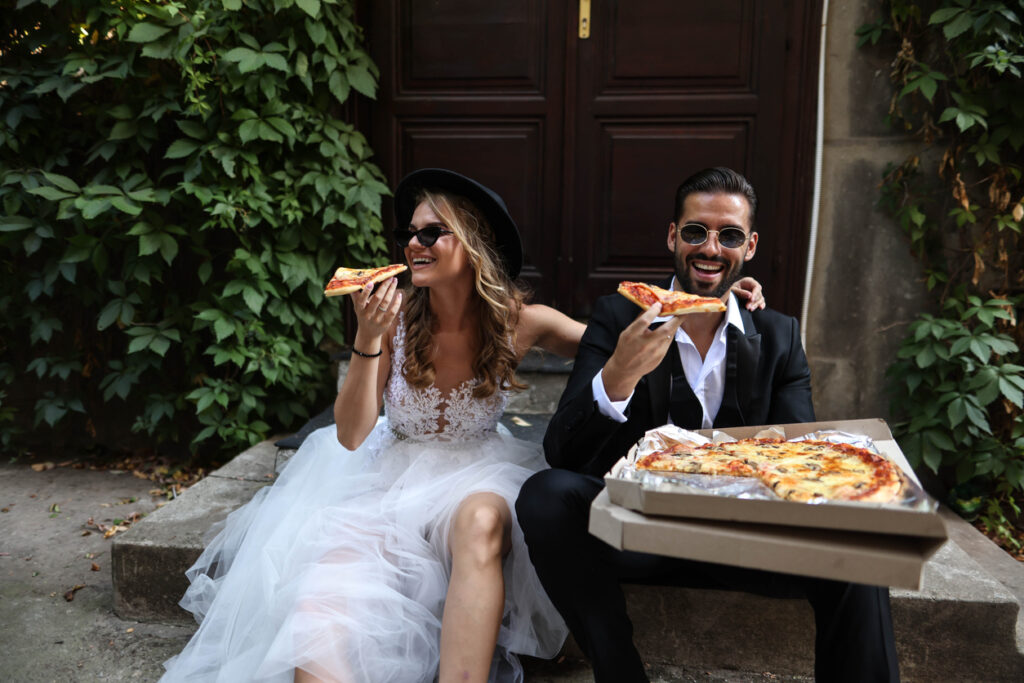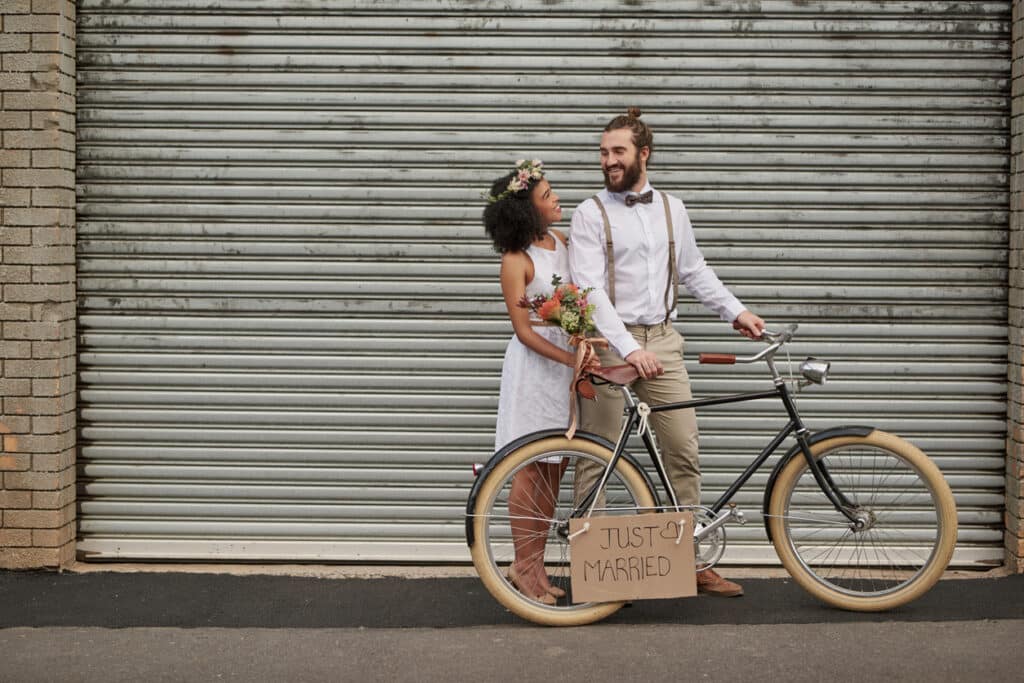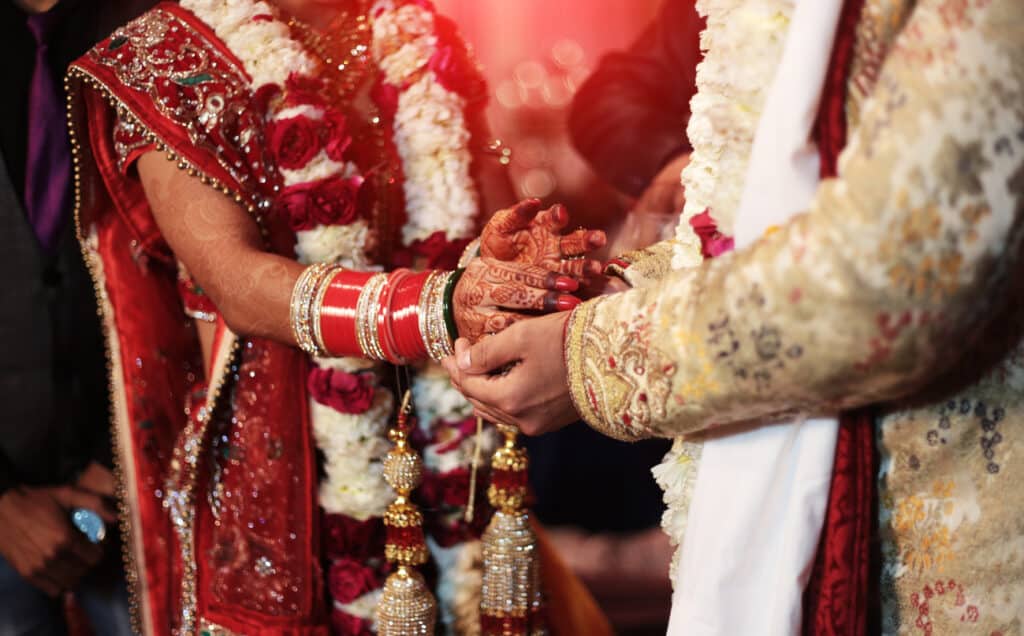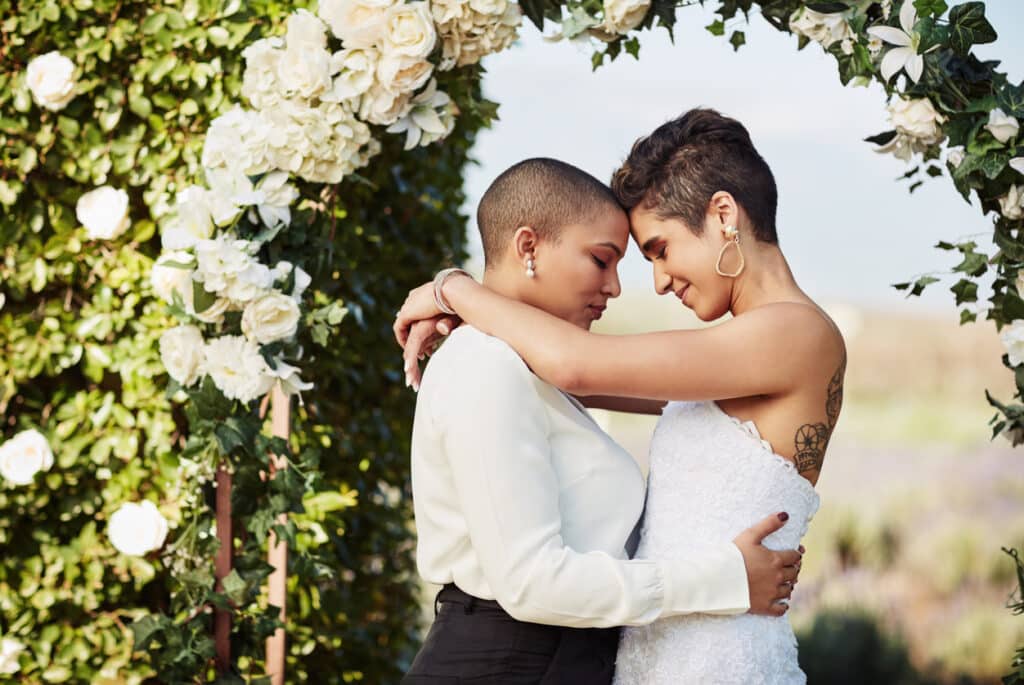Couples planning to get married in Germany should get started with the legal formalities as soon as possible. Several months out is not too soon.
Things can usually be carried out in far less time than that, but a number of legal issues, particularly previous marriages, can create a hassle.
Who can get married?
First of all you will need to make sure that you are able to get married in Germany, as there are a few basic rules concerning those who can and cannot get married here:
- You must be over the age of 16. If you are under 18 then you must have the consent of your parents or guardians.
- You must be fully capable of understanding the process of marriage and what you are entering into
- You cannot be blood related (for example; parent, child, grandparent / children (or great grandparents/children), siblings, aunt / uncle / nephew / niece, adoptive parent/child)
- You are not entering into a marriage of convenience (for example, with the sole intent to remain legally in Germany)
Sex or nationality is not a defining factor regarding getting married in Germany. Same-sex couples, and foreign couples are legally allowed to marry in Germany.
Permanent residence is not a requirement in order to get married here. Therefore it is possible to travel to Germany simply to get married!
What Documents Are Required To Get Married in Germany?
In general, you will be required to present the following:
- Valid Passport, ID or any other official proof of identity which includes a photograph.
- An original birth certificate
- Meldebescheinigung or a similar document (something that shows proof of a minimum of 21 days of continuous residence in Germany) – should be dated no older than 14 days prior to your marriage application
- Certificate from the registration authority of a second residence. *Only applicable if you are NOT submitting your application at the office of your primary residence
- Birth certificates of children you have in common (if any)
- Final Divorce Decree / Former spouse’s Death Certificate and any relevant authentications/legalisation – where applicable
- Registers’ Office – Standesamt application form & questionnaire
After learning about the general process and requirements in this article, we highly suggest you also check out these more specific scenarios:
Non-EU citizen, marrying a German
EU citizen, marrying a German
Non-EU citizen residing in Germany, marrying a Non-EU citizen
Non-EU citizen residing in Germany, marrying Non-EU citizen residing in Germany
EU citizen residing in Germany, marrying EU citizen residing in Germany

Stopping for a bite to eat. Credit: Jovana Stojanovic
Documents Required For Foreign Nationals Getting Married In Germany
Which documents are required from foreign residents for a legally binding marriage in Germany mainly depends on two things: Your country of origin and marital status.
The documents required may differ depending on the country of origin. If you are non-German or a citizen of an EU state, the registrar’s office normally also requires a residence permit (which can also include a suspension of deportation).
The requirements of your local registrar’s office may differ and vary from case to case, so it’s best to get an appointment at your nearest Standesamt and verify what is required for you as a couple and your personal circumstances.
As well as the above listed documents, foreign nationals will also be required to provide the following:
- Valid Passport, ID or any other official proof of identity which includes a photograph. (Foreign nationals whose nationality is not specified in the official proof of identity must establish their nationality through a certificate from the responsible authority in their country of origin).
- Visa – to show legal entry into Germany – where applicable*
OR…
- Aufenthaltstitel – German residence permit -(where applicable), For those with a German residence permit, please also provide an Aufenthaltsbescheinigung der Meldebehörde (and not a regular Meldebescheinigung). This should show an indication of the family status, nationality and place of residence. This is different if the registry office and the registration office belong to the same municipality.
- Ehefähigkeitszeugnis. This is a certificate that states you are legally free to marry. Your embassy can help you to obtain this.
- Einkommensbescheinigung – Financial statement – where applicable
- Any relevant translations by an authorised German translator** – where applicable
- Any relevant legalisations – where applicable
Some cities or states have published a list of special requirements per country. For examples please see here for Cologne – Köln or the Bavaria- Bayern areas.
* Please note; not all foreign nationals require a visa to enter Germany
** An authorised translator is a professional translator or an official translation company.You can search online for a professional/authorised translator and there are many to choose from.
Prices can vary but are said to be quite expensive in Germany.
You can have a look at the BDU website here, which is the ‘Federal Association of Interpreters and Translators’ in Germany. They provide lots of helpful information and advice on what to look out for when hiring a translator in Germany.

Sweet couple celebrating. Credit: LaylaBird
Your Marriage Application With The German Authorities
It is recommended that if you are planning on getting married in Germany, you allow at least several months (longer if possible) for the application process to take place and to allow for all the formalities to be completed.
You must apply for marriage registration at the local registrar’s office where one of you resides. If neither of you live in Germany, then you may register your application for marriage at any registrar’s office of your choice in the country.
When you go to register your wedding application, this should ideally be done in person by both parties. But, if one of you cannot attend it is possible to authorise your partner, in writing, to represent you.
If neither of you are able to attend, then there must be a valid reason for this. In such cases, you will be able to submit your marriage application in writing or via an authorised representative.
As part of the marriage application process for marriage in Germany, the registrar’s office will investigate the ‘marriage prerequisites’, this includes each applicant’s identity and whether someone is already married or not.
In addition, the registrar’s office will also check whether you and your partner genuinely live together/want to live together, forming a family.
The registrar’s office is not allowed to approve a ‘marriage of convenience’ so if it is suspected that you may be entering into such a marriage, your application might be denied.

A bike ride through the city after their wedding. Credit: LaylaBird
What Are The Fees For Marriage in Germany
The fees for a civil ceremony alone varies between €50 – €200. Some of the German states apply higher fees if one or both of you are a foreign national (ie not German), but higher fees may also apply if you wish to get married outside the normal hours of the registrar’s office or at a different location.
Additional fees also include the application fee, the issuance of the marriage certificate and additional requested certificates.
If the registrar’s offices don’t list their fees on their website then you can call or email the office directly to find out. We definitely advise that you do this so you can familiarise yourself with the fees involved for marriage in your area, prior to making your application.

This happy couple show off their wedding rings. Credit: Gorodenkoff
Your Wedding Ceremony in Germany
While the bureaucracy in Germany can be quite clinical, once you have the approval you are free to get married. You must get married at the registrar’s office, where they will have a ‘wedding room’. These wedding rooms are often very lovely, with low lighting, beautiful paintings on the walls and flowers arranged to really set the wedding vibe for couples.
You must have 2 witnesses that attend your ceremony. The ceremony will be conducted in German so an interpreter should also be hired if either one of you or your witnesses, do not speak German.
As part of the ceremony you must both be physically present at the wedding and each of you must declare ta marriage of mutual consent.
Aside from this there are no further requirements for your wedding in Germany. Prior to the ceremony, you are able to discuss any special wishes for your ceremony, such as your own vows, songs, poems etc with your registrar. No religious content is permitted during the civil ceremony.
After your marriage the registrar will issue you with a marriage certificate. Any additional copies (including any requests for an ‘international’ certificate) should be requested in (German) writing, to the Standesamt where your marriage took place.
Note that since all records are kept public, and that anyone is able to request a marriage certificate provided they have a good enough reason for the request

An Indian wedding ceremony. Credit: Rvimages
Religious Ceremonies in Germany
In Germany, any valid marriage must be performed at the registrar’s office – Standesamt.
This is regardless of whether you intend to have a religious wedding as well.
Priests, ministers, rabbis, imams, or consular officers may not perform a legally binding marriage – only an official registrar can do this in Germany. If you intend to have a wedding at your church, temple or synagogue for example, then please note that the civil ceremony at the registrar’s office must come first. You can then move onto your pre- chosen religious location for your ceremony there.
Getting Married in Germany for the LGBTQ+ Community
In 2001, registered partnerships were made legal for same sex couples. However, this did not fully give the same rights to gay couples as those offered to opposite sex married couples.
In 2017, same sex marriage was legalised and made possible in Germany and finally gave homosexual couples the same marital rights and adoption rights as gay couples. The new law has been named ‚Marriage for All‘ – „Ehe für alle“.
For those homosexual couples who are already in a registered partnership it is possible apply for marriage status if you wish. You will simply need to make an appointment at the registry office where your registered partnership was formalised, and declare in the presence of each other and the registrar that you want to live as a married couple.
The registry offfice will note the date of marriage as the date on which you formed your registered partnership.
It is possible for couples already in a registered partnership to remain so – you do not have to get a ‘married’ status.
Please note however, because same sex marriage completely replaced the registered partnership, obtaining a new registered partnership is now no longer possible in Germany.

An intimate moment. Credit: LumiNola
Simple Alternatives to the German Wedding Process
We know from experience that couples, especially if one or both of you is non-German, often find the process of getting married in Germany a confusing and sometimes tough experience. But did you know that Denmark is one of the easiest countries in the world to get married?
Given the wedding process can be more complicated than it needs to be in Germany, a lot of German couples or couples living in Germany, choose to simply ‘hop’ over the border and get married in Denmark.
You may have heard of this as a possibility, it might be the first time it’s ever been offered as an option but Getting Married in Denmark is a very popular choice for many couples who reside in Germany and it has been going back as far as the 1960-70s.
The documentation is simple, the process easy and straightforward and thousands of couples travel to Denmark for their quick, simple and fast elopement wedding every year.
If this sounds like an option you’d love to consider, please do get in touch with us and we’d love to advise you on the process of Getting Married in Denmark to find out if it would be a perfect alternative option for you!

